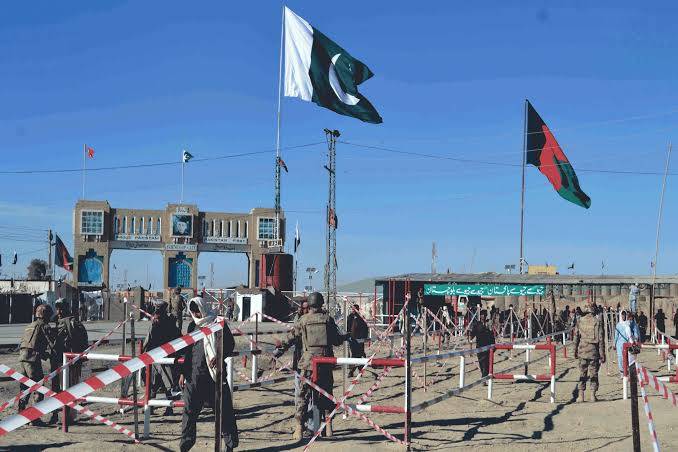Breakthrough reported at Pakistan Afghanistan border
Shares

The Torkham border crossing, a crucial link for trade and human movement between Afghanistan and Pakistan, is slated to recommence regular operations starting Friday. This comes after an eight-day suspension, during which the border was shuttered due to Pakistan's allegations of Afghanistan constructing a new structure within its territory.
This dispute escalated into an exchange of fire between the security forces of the two nations, resulting in the border closure and leaving hundreds of trucks and travelers stranded along the Pakistan-Afghanistan border.
Afghanistan, being a landlocked nation, heavily relies on a transit trade agreement with Pakistan to facilitate commerce with the rest of the world. Asmat Ullah Yaqub, overseeing Torkham border affairs, confirmed to The Express Tribune the reopening of the crossing. He stated, "At eight o'clock tomorrow, the gate will be open as usual for transit and passengers." This announcement signals a return to normalcy for the bustling border crossing.
Notably, Islamabad had set a condition for reopening the border, demanding the withdrawal of Tehreek-e-Taliban Pakistan (TTP) militants from the Chitral district. Reports emerging from on-ground sources suggest that the TTP has indeed pulled out from the border areas in response to the incursion of the Kabul regime.
This development signifies a positive step towards de-escalation and the resumption of vital trade and travel links between Afghanistan and Pakistan, essential for the economic well-being of both nations and the broader region.
In conclusion, the reopening of the Torkham border crossing brings relief to the numerous trucks and travelers stranded during the eight-day suspension, and it represents a crucial step toward normalizing trade and human movement between Afghanistan and Pakistan. The condition set by Islamabad for the withdrawal of TTP militants from the Chitral district has been met, contributing to the de-escalation of tensions in the region.
This incident underscores the significance of maintaining diplomatic channels and agreements to ensure the uninterrupted flow of goods and people across international borders, particularly in regions where such crossings are lifelines for economic activity
